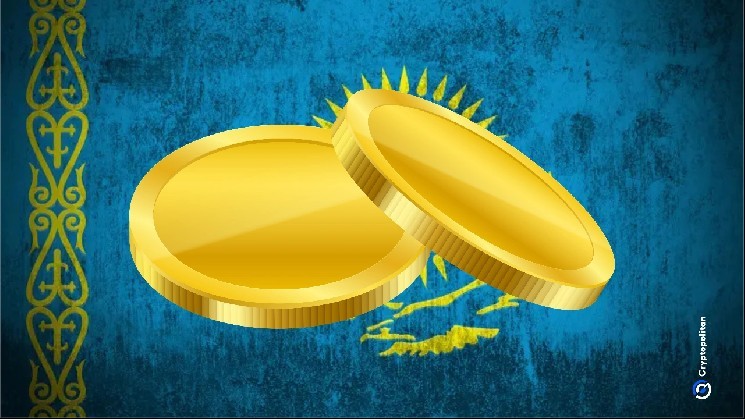Kazakhstan has shut down more than 100 cryptocurrency exchanges this year, in what amounts to a major crackdown on illegal coin trading within its borders.
This news was announced despite previous indications that the country intends to expand its licensing regime to cover more platforms offering such services, in a bid to establish itself as Eurasia's leading crypto destination.
Astana confiscates record amount of digital assets from failed exchange
Kazakh authorities have shut down 130 illegal cryptocurrency exchanges and seized crypto assets worth millions of US dollars.
The tally was cited by local and regional media and published by Kairat Bidzhanov, deputy chairman of the Agency for Financial Supervisory Services (AFM).
According to a report in the Times of Central Asia, an online English-language newspaper that reports on developments in the region, he elaborated:
“Activities of 130 unlicensed virtual currency exchanges involved in laundering the proceeds of crime were shut down this year. $16.7 million worth of virtual assets were seized.”
Speaking at a government meeting, the official also highlighted the agency's efforts to combat illegal cash-out transactions.
Since the beginning of 2025, Kazakh authorities have busted 81 criminal groups involved in such activities.
These accounted for more than 24 billion tenge (more than $44 million) in sales, the official added, also cited by business news outlet Kapital.kz on Tuesday.
Despite the dedicated measures introduced by the executive branch of Astana, this is an increase of 1 trillion tenge compared to last year, Villanov acknowledged.
He also pointed out that the risks primarily stem from anonymous transactions, where neither the sender nor the recipient is identified.
The regulator highlighted the widespread exploitation of “money mules” by criminals and fraudsters in the former Soviet Union region, adding:
“These transactions are often carried out using bank cards issued to the nominal holder.”
To curb this practice, AFM and the National Bank of Kazakhstan (NBK) have adopted new rules that require the provision of a personal identification number and verification via a mobile banking app for debit card charges exceeding 500,000 tenge (just over $900).
Starting January 1, banks will also be required to store footage from cameras installed at ATM locations for at least 180 days. The watchdog also plans to expand biometric authentication, including facial recognition and fingerprint recognition, to all cash transactions.
Similar measures have recently been taken by regulators in Russia, where money mules, commonly referred to as “droppers,” have also become a serious criminal phenomenon.
These include giving banks the power to impose a daily cash withdrawal limit of $600 in the event of suspicious transactions, and adopting amendments that have been criticized for targeting crypto traders.
As reported by Cryptopolitan, the Kazakhstan roundup comes after law enforcement in Moscow last month raided a Russian cryptocurrency exchange suspected of facilitating capital flight.
Exchanges operating outside Kazakhstan’s AIFC hub remain illegal
According to Kazakhstan's Law on Digital Assets, only virtual currency exchanges licensed by the Astana Financial Services Authority (AFSA) are authorized to operate in the country.
AFSA is the regulatory body responsible for supervising the activities of the capital's financial hub, the Astana International Financial Center (AIFC), under a special regime.
Exchanges operating without an AFSA license are still considered illegal in Kazakhstan, despite a statement in May that the financial authorities were preparing to legalize other transactions as well.
Expanding the current licensing system beyond the AIFC's jurisdiction and covering platforms that are not registered as residents was expected to facilitate crypto trading in other parts of the country.
Kazakhstan is already a major Bitcoin mining hotspot and aims to attract all Eurasian crypto businesses.
While Astana has occasionally blamed miners for power shortages and economic losses, it has also acknowledged that it has received more than $31 million in tax revenue from mining over the past three years.

